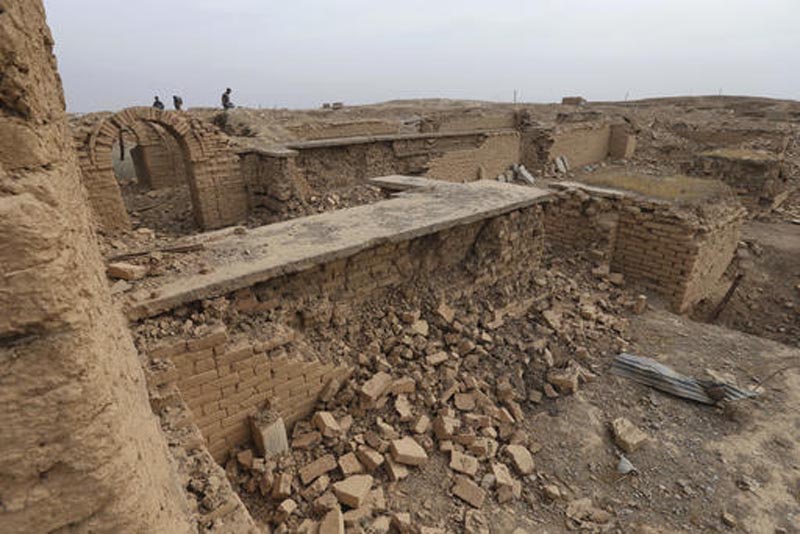UN warns that destroying cultural heritage may be war crime
UNITED NATIONS: The UN Security Council unanimously adopted a resolution Friday condemning the unlawful destruction of cultural heritage and warning the Islamic State extremist group, al-Qaida and other combatants that such attacks may constitute war crimes.
The resolution approved by the UN's most powerful body expands previous measures which were limited to the illicit trafficking in looted cultural items to fund terrorism, and focused on Iraq and Syria where Islamic State extremists have destroyed ancient sites including Palmyra.
The newly adopted measure targets not only IS, al-Qaida and its affiliates but all parties to conflicts.
It condemns and urges prosecution of those responsible for attacks against historic monuments and sites and buildings dedicated to religion, education, art, science or charitable purposes as well as those who carry out illegal excavations, loot and traffic in stolen goods.
Irina Bokova, head of the UN cultural agency UNESCO, called the resolution "historic" saying it "reflects new recognition of the importance of cultural heritage for peace and security."
"Heritage is identity — it is belonging," she told the council after the vote. "The deliberate destruction of heritage is a war crime — it has become a tactic of war, in a global strategy of cultural cleansing."
Bokova said that's why defending cultural heritage "is a security imperative, inseparable from that of defending human lives."
UN political chief Jeffrey Feltman said the resolution "aims to strengthen international cooperation to deprive terrorists of funding, but also to protect cultural heritage as a symbol of understanding and respect for all religions, beliefs and civilizations."
The resolution calls for international cooperation in investigations, prosecutions, confiscations and the return of looted and trafficked cultural property. It also calls on member states to carry out measures including introducing or improving cultural inventory lists and adopting import and export regulations that require certification of the provenance of cultural items.
Yuri Fedotov, executive director of the UN Office on Drugs and Crime, called the destruction of landmarks such as the giant Buddhas in Bamiyan, Afghanistan, the Roman monuments in Palmyra and shrines and mosques in the Iraqi cities of Tikrit and Mosul "reprehensible attempts to erase history."
"But the destruction and looting are also generating profits for terrorists through trafficking, carried out in collusion with organized crime groups," he said. "Those profits fund further acts of terrorism, and enable yet more destruction and looting of cultural sites and archaeological treasures."
Fedotov said his office is working with UNESCO, INTERPOL and others to strengthen national, regional and international responses.
"We have the treaties, tools, guidelines and training materials," he said. "But we need to operationalise commitments more effectively, and we need member states to provide more resources in the spirit of shared responsibility."
World donors pledged more than $75 million Monday to a UNESCO-backed alliance to protect cultural heritage sites at a conference in Paris' Louvre Museum. French President Francois Hollande passionately called on more countries to contribute to the newly-created heritage alliance and help push it past its "ambitious" $100 million goal.






